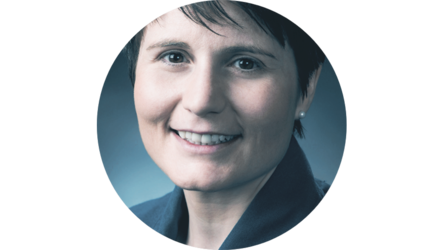Participating in Discovery & Preparation activities
Discovery & Preparation funds activities to gather knowledge in all areas of space technology and research. Through these activities, it supports other ESA directorates, as well as mapping out ESA’s future. For a variety of ideas and inputs, Discovery & Preparation encourages small companies and universities to participate in these activities, as a new view on old problems often triggers astonishing results.
Interaction with Discovery & Preparation also results in meeting other companies, universities and of course ESA.
Discovery & Preparation publishes open invitations to tender in the EMITS system on a regular basis. Your ideas for new activities are also sought via the Open Space Innovation Platform (OSIP).
The following checklist should help interested companies, institutions and universities from ESA Member States get involved in open invitations to tender.
- Register in EMITS (companies, institutes and universities wishing to do business with ESA are required to register as potential bidders and become EMITS users)
- Review the EMITS Intended Invitations to Tender (ITTs) regularly
- Look at ESA’s webpage with information for SMEs
- Use EMITS to communicate your interest to participate in an ITT and contact potential partners, which can also be identified via EMITS
- Acquire and maintain an up-to-date knowledge of ESA's programmes, activities, organisation and operations methods
To participate via OSIP, please register and review the platform for relevant Campaigns or Channels. Further information can be found in the Campaign or Channel descriptions.
How to work with Discovery & Preparation
Each year Discovery & Preparation funds a large number of activities related to all areas of space research and spaceflight. Four types of activities are possible:
- Studies: Either as a precursor for technology development or to assess the feasibility of systems for space, with budgets of typically 20–100 k€ per study. Studies emphasise the novelty of the concept.
- Early technology projects: The emphasis is on novel, low Technology Readiness Level activities of potential interest to space applications. This includes activities, as done in the past through the ITI scheme, covering: risk reduction, proofs of concept, and technology developments up to prototype level with potential customer interests. Early technology development activities have budgets between 50 and 175 k€.
- Co-sponsored research activities: Experience has shown that very innovative ideas are often generated by universities. Activities under this heading last between six months and three years, with budgets typically of 20–90 k€. Co-sponsored research activities include the co-sponsorship of PhDs.
- Mission studies: pre-Phase A, feasibility studies or system studies to support the development of future missions. These are typically performed as parallel studies (i.e. two or three industry consortia that are independently working on the same subject to provide a wide range of possible solutions and concepts to ESA).
We look forward to working with you in the future.















 Germany
Germany
 Austria
Austria
 Belgium
Belgium
 Denmark
Denmark
 Spain
Spain
 Estonia
Estonia
 Finland
Finland
 France
France
 Greece
Greece
 Hungary
Hungary
 Ireland
Ireland
 Italy
Italy
 Luxembourg
Luxembourg
 Norway
Norway
 The Netherlands
The Netherlands
 Poland
Poland
 Portugal
Portugal
 Czechia
Czechia
 Romania
Romania
 United Kingdom
United Kingdom
 Slovenia
Slovenia
 Sweden
Sweden
 Switzerland
Switzerland






























